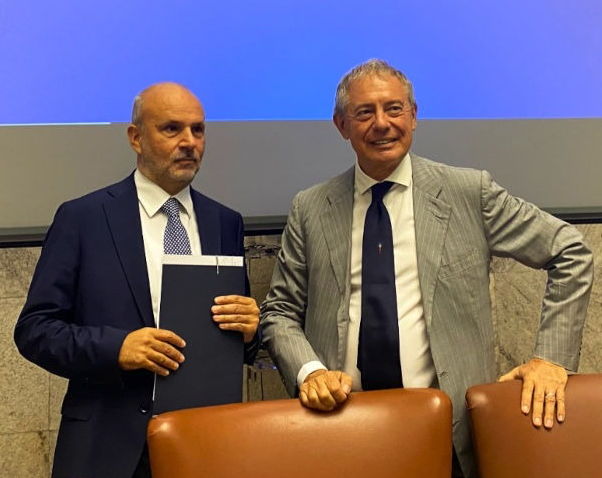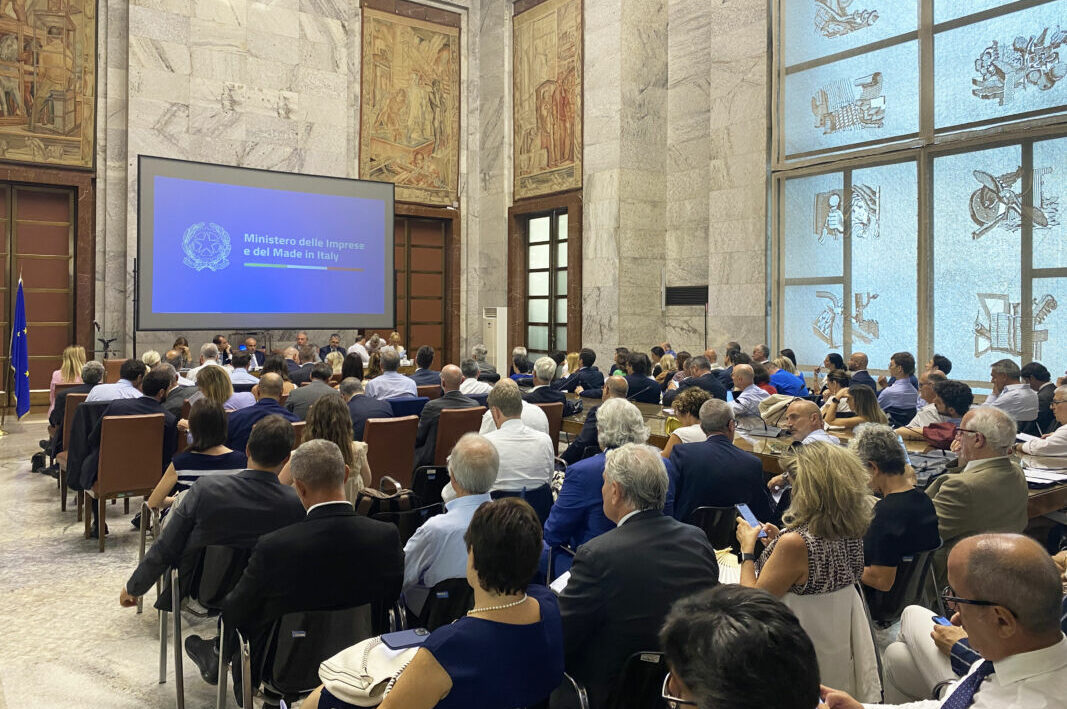Chaired by the Minister of Business and Made in Italy, Adolfo bearand by the Minister of Health, Horace 
The two tables follow the previous meeting of 29 March in which discussions on the main issues of the sector were launched and they began to operationally define the first support interventions of the two compartments. It should in fact be remembered that the Health sector is a specialization that fully responds to the European social model: if Europe represents 7% of the world population and 25% of the GDP, the welfare system is equal to over 50% globally.
From the MiMit press release
___________________________
Build one industrial policy of pharma that responds to the needs and expectations of Italian companies, strengthening the dialogue with industry and the world of trade union representation, to identify streamlined solutions aimed at truly promoting theinnovation and the value of the sector. All while strengthening the positioning of the supply chain at European and non-EU level, also in light of the numerous challenges for the sector, starting with the revision of the European pharmaceutical legislation (which causes so many stomach aches to businesses). The goals of the Tables for Pharmaceuticals and Biomedical met today in Rome, at Palazzo Valentini.
Chaired by the Minister of Business and Made in Italy, Adolfo Urso and by my Health colleague, Horace Schillaci, the tables brought together representatives of pharmaceutical and biomedical companies, the State-Regions Conference, trade unions and trade associations. The dialogue between life science companies and the executive appears to the writer to be decidedly close, as he has also shown the participation of numerous ministers of the Meloni government in the last public assembly of Farmindustria. We also remember that in 2022 the Italian pharma has reached a value of 49 billion euros, of which more than 85% of export. In short, it is now a fact that pharmaceuticals and biomedicals are strategic for the country.
The stakes
Satisfied pharmaceutical companies. Today's meeting “testifies once again the strategic vision and the Government's willingness to quickly activate the policies necessary to win the ever-faster global competition in the Life Sciences", says the president of Farmindustria Marcello Cattani, underlining the appreciation for a “pragmatic approach, based on continuous dialogue with the company representatives. At stake are the 1,600 billion dollars of international investment of the pharmaceutical industry in research from 2023 to 2028 to which the same could be added in production".
According to Cattani "Italy can manage to attract an important part of it, thanks to the value of its industrial presence, investments and skills". However, it is essential that “at the European level the current proposal
From payback to Aifa reform
Considered the costs of all raw materials and the increase in international competition, “there is an urgent need for a new scheme of incentives for investments and measures to make Italy more attractive, with finally adequate resources and therefore an expenditure compatible with the industrial presence. And – adds Cattani – there is a need forimmediate reduction of the payback and its progressive elimination. Because it is an unfair tax that has weighed several billion on companies for years".
Businesses are also concerned about another aspect: the reform of the' Aifa. "Is critical to have faster regulatory processes, which recognize the right value of drugs and are in step with the times and with the complexity of global competition”.
“We particularly appreciated – he comments Fabio Torriglia, vice president of Egualia, the association of manufacturers of equivalents, biosimilars and value added medicines - Minister Urso's words on the need to encourage all the instruments at national and European level which allow bring back and consolidate pharmaceutical production in our country, in particular of all the drugs of consolidated use which are the basis of the 80% of therapies for chronic diseases in Italy and in Europe. The industrial fabric of our companies and of all our third party partners in Italy is the backbone of pharmaceutical production and it is undoubtedly central to be able to have both tools that allow for the necessary support for research and development, and tools that strengthen industrial production. On this point, Egualia companies are ready to play their part in terms of investments if the framework of tools and incentives that will be made available to companies both at national and European level goes in this direction. However, we need to quickly plan a new governance for our sector, without which productive investments risk turning towards other more attractive countries".
Fortune Health – July 20, 2023
Related news: The ministerial table on Dm 70 and Dm 77 is underway
